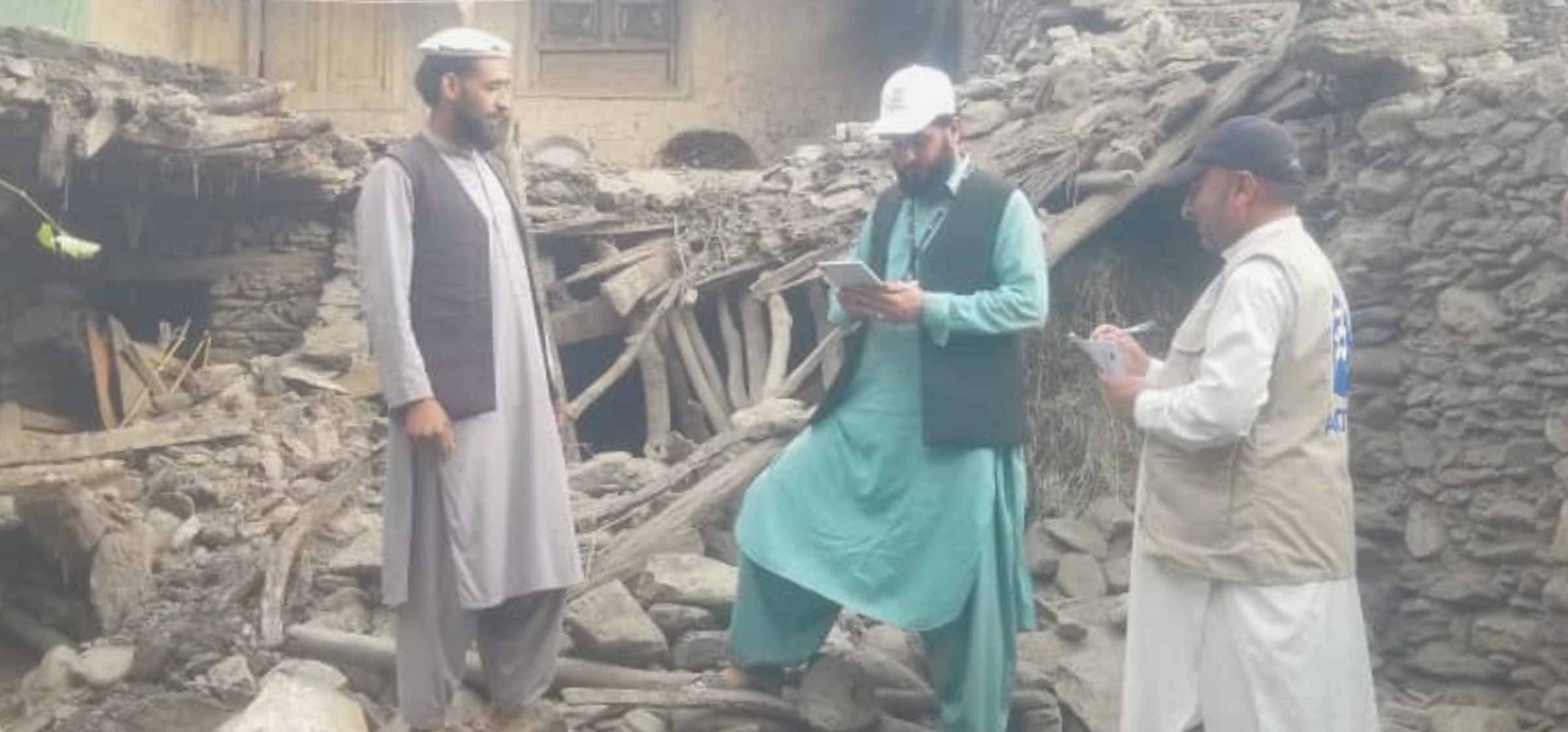REACT Launches Urgent Appeal Following Devastating Afghanistan Earthquake
Posted by Olivia Everett 10th September 2025 News
Estimated Reading Time: 3 mins
REACT has launched an urgent humanitarian appeal following the 6.0 magnitude earthquake that struck Afghanistan’s eastern provinces on 31 August, claiming over 2,205 lives, and injuring 3,640.
The devastation has left 6,782 families without homes, food, or safe water.
Entire valleys have been reduced to rubble. Roads are buried by landslides, and remote mountain communities remain cut off. Families are crowded into makeshift shelters and people pulled alive from rubble now face cold nights without tents, medicine, or clean drinking water. This is compounded by the fact that access is brutally difficult. Winter is closing in fast, and in a country where security is fragile, movement tightly controlled, and every single step of humanitarian work must be negotiated with caution.
In response, we have deployed our Advance Team. Visas secured, bags packed, teams on planes, their REACT humanitarian training hard-wired.
Our team of volunteers has been cleared to deploy with the HALO Trust. First Dubai and then on to Kabul if all goes well.
From Kabul, our three-person Advance Team, in partnership with The HALO Trust, will be cutting through bottlenecks, mapping needs in real time, and opening safe routes for aid. Meanwhile, in the UK, our Watchkeepers are locked in 24/7, tracking aftershocks, cross-checking access, and ensuring every move is disciplined, safe, and effective.
REACT brings four integrated capabilities to every response. Our needs and capacity assessments provide real-time, internationally recognised insights that decision-makers can trust. From there, we deliver targeted humanitarian support; fast, agile interventions designed to reach at-risk populations when it matters most. We also focus on capacity strengthening and exit, ensuring that local communities are equipped to take ownership and continue recovery long after the first response. Underpinning it all is strategic coordination, bringing coherence and leadership alongside partners on the ground.

Norwegian Refugee Council (NRC) team conducting a damage assessment in Norgal district, Kunar Province, after the 31 August earthquake. This image shows NRC staff, not REACT. Photo: NRC team/NRC
In Afghanistan’s eastern provinces, the obstacles are immense. Landslides and collapsed roads block access to entire valleys, leaving some of the worst-hit communities cut off. Security risks add another layer of fragility, demanding every movement be carefully negotiated. At the same time, humanitarian needs are overwhelming. Families are without shelter, food, clean water, or medical care, and with winter closing in, the urgency grows by the hour. Coordination is fragile, which makes trusted, disciplined partners essential.
Through our partnership with The HALO Trust, REACT has secured the access needed to operate. Our capability is proven, our teams are ready, but to move fast, we need your support. Every pound fuels the response.
Your donation powers the essentials of a disciplined, life-saving response: deploying trained teams, covering the logistics that get them into hard-to-reach areas, and providing the secure communications that keep them safe and effective. It also sustains follow-on teams, ensuring that communities are supported beyond the first wave of crisis.
Together, this is the difference between readiness and rhetoric.
Could help ensure a displaced family has safe drinking water and basic hygiene support
Could enable last-mile logistics work.
Could help REACT’s trained volunteer Responders travel into some of the hardest-hit districts
When an earthquake strikes this deep in the mountains, survival depends on speed, trust, and discipline. REACT’s teams, working side-by-side with our partner The HALO Trust are already cutting through bottlenecks to reach families most at risk but they need support.
We only deploy where we add clear value, and we stand down when we don’t. If access changes, your donation will still fund life-saving response and readiness for those most at risk. We’ll report updates as operations progress
